A hospital doctor enters a ward for sick children who have a variety of ailments and disabilities.
Ideally, the doctor avoids being infected by any 'germs' that the children might be carrying.
Ideally the doctor avoids being 'infected' by any physical and emotional pains that the children might be suffering from.

There are a lot of children with 'problems'.
In the USA, 'child disabilities due to neurodevelopmental and mental health problems have increased greatly.'
'Nearly six million kids had a disability in 2010 - almost one million more than in 2001.'
dailymail
If we were to be infected by the physical and emotional pains of all these millions of children we would be in trouble.
However, we can have an influence for good on someone who is suffering.
1. Scientists have discovered that pairs of tiny particles can be invisibly connected even when they are some distance apart.
When the scientists carry out an action on one particle, the other particle is instananeously affected, even though it is many miles apart.
A Dutch team has proven that 'spooky action at a distance' is real.
dailymail.
We can mentally influence - and are influenced by - the thoughts of others.
We can mentally influence biological processes in bodies other than our own.
We can mentally influence the functioning of non-biological systems.
The Next Great Turning - Context Institute


It does not help if the doctor is shaking and weeping.
The good doctor, while feeling compassion, detaches himself from suffering.
The good doctor detaches himself from his selfish ego.
It is the selfish ego which produces anger, grief, worry, and despair.
The good doctor is positive, loving and calm.
This helps the sick patient.



We see ourselves as separate selves.
Our body feels the pleasures and pains of life.
Imagine switching out of the SELF mode into the NON-SELF mode.
In the NON-SELF mode there is no grasping of pain or pleasure.
But this is difficult for our minds to imagine, just as 'infinity' is difficult to imagine.

Some people write about the dangers of talking about the Oneness of everything.
"Holding to both the oneness and multiplicity of existence takes greater spiritual maturity...
"It requires being present with the moment with all it's paradox and radicalness.
"Experiencing both the bliss and sorrow of existence takes greater spiritual maturity...
"It requires us to be present to the entire situation of existence, our own and all others.
"In terms of our tradition, we describe this as the dance between emptiness and form and our path as the willingness to experience both and their mutuality.
"The main emphasis of our path is to show up wakefully to the play of emptiness and form..."
Not Duality is Not Non Duality | School of Yogic Buddhism
In the USA, 'child disabilities due to neurodevelopmental and mental health problems have increased greatly.'
'Nearly six million kids had a disability in 2010 - almost one million more than in 2001.'
dailymail
If we were to be infected by the physical and emotional pains of all these millions of children we would be in trouble.
1. Scientists have discovered that pairs of tiny particles can be invisibly connected even when they are some distance apart.
When the scientists carry out an action on one particle, the other particle is instananeously affected, even though it is many miles apart.
A Dutch team has proven that 'spooky action at a distance' is real.
dailymail.
2. According to some research at Princeton University
We can mentally influence biological processes in bodies other than our own.
We can mentally influence the functioning of non-biological systems.
The Next Great Turning - Context Institute

Sia Furler's 'Chandelier', from the album 1000 Forms of Fear, suggests mind-control?
3. A team of psychologists from Saint Louis University claims that stress can be spread from person to person like a virus.
We can be infected by the stressed person's odour, posture, facial expression and tone of voice.
The researchers put the participants into pairs.
One member of the pair had to make a public speech and the other had simply to watch the speech.
The researchers measured the levels of cortisol and a stress-related salivary enzyme in both the stressed speaker and in the observer.
The researchers found that the stress response in the witnesses was 'proportional to that of their paired speakers'.
ABC. / dailymail.
Saint Louis University is associated with the CIA's MK-ULTRA mind control programme.
Now, if stress can spread like a virus, so too can love and healing spread like a virus.
3. A team of psychologists from Saint Louis University claims that stress can be spread from person to person like a virus.
We can be infected by the stressed person's odour, posture, facial expression and tone of voice.
The researchers put the participants into pairs.
One member of the pair had to make a public speech and the other had simply to watch the speech.
The researchers measured the levels of cortisol and a stress-related salivary enzyme in both the stressed speaker and in the observer.
The researchers found that the stress response in the witnesses was 'proportional to that of their paired speakers'.
ABC. / dailymail.
Saint Louis University is associated with the CIA's MK-ULTRA mind control programme.
Now, if stress can spread like a virus, so too can love and healing spread like a virus.

Can we feel compassion without feeling some of the suffering of the person in distress?
1. Imagine the doctor entering the hospital ward.
It does not help if the doctor is shaking and weeping.
The good doctor, while feeling compassion, detaches himself from suffering.
The good doctor detaches himself from his selfish ego.
The good doctor is positive, loving and calm.
This helps the sick patient.

schweitzerfellowship.wordpress.com...
2. Imagine you are the pilot of a passenger plane which has just been struck by some dangerous emergency.
It does not help you, nor the passengers, if your ego feels extreme fear.
On the other hand, a little fear might prevent you from taking foolish risks.
A game of golf would not be real if there were not some minor irritations; but you want to avoid the extremes.

3. Imagine you are the parent of a child who has just been killed by agents of the US government.
Ask yourself - why does the government carry out such acts of terrorism as part of its 'Strategy of Tension'?
They want to get you angry with, and scared of, the 'terrorists'.
When people are scared they will obey their 'big brother' government.
So, detach yourself from fear and anger.
Fear and anger make you sick.

4. There may be times when we are hit by extreme fear, anger, grief, worry and despair.
But we should practise non-attachment to such extremes.
This means not holding on.
On the other hand, a little fear might prevent you from taking foolish risks.
A game of golf would not be real if there were not some minor irritations; but you want to avoid the extremes.

Ask yourself - why does the government carry out such acts of terrorism as part of its 'Strategy of Tension'?
They want to get you angry with, and scared of, the 'terrorists'.
When people are scared they will obey their 'big brother' government.
So, detach yourself from fear and anger.
Fear and anger make you sick.

But we should practise non-attachment to such extremes.
This means not holding on.

michaelwilliammcdonald.blogspot.com ...
5. We should practise non-attachment to lots of things.
"All the delightful things of the world - sweet sounds, lovely forms, all the pleasant tastes and touches and thoughts - these are all agreed to bring happiness if they are not grasped and possessed.
"But if you regard them merely as pleasures for your own use and satisfaction and do not see them as passing wonders, they will bring suffering."
-Sutta Nipata
Blog: Pleasure and Joy

6. It is not a good idea to 'suppress' our feelings.
Research shows that people who are able to talk about their grief, anger or fear get rid of these negative feelings more quickly.
People who are not able to talk about these feelings are more likely to suffer ill health, mental or physical.
The 'good doctor' has the knack of being non-attached to grief, anger or fear when he enters the ward.
Some people get angry when there is a long queue at the airport.
Some people learn not to get angry.
They are not supressing their anger; they just don't feel anger.
5. We should practise non-attachment to lots of things.
"All the delightful things of the world - sweet sounds, lovely forms, all the pleasant tastes and touches and thoughts - these are all agreed to bring happiness if they are not grasped and possessed.
"But if you regard them merely as pleasures for your own use and satisfaction and do not see them as passing wonders, they will bring suffering."
-Sutta Nipata
Blog: Pleasure and Joy

6. It is not a good idea to 'suppress' our feelings.
Research shows that people who are able to talk about their grief, anger or fear get rid of these negative feelings more quickly.
People who are not able to talk about these feelings are more likely to suffer ill health, mental or physical.
The 'good doctor' has the knack of being non-attached to grief, anger or fear when he enters the ward.
Some people get angry when there is a long queue at the airport.
Some people learn not to get angry.
They are not supressing their anger; they just don't feel anger.

Our body feels the pleasures and pains of life.
Imagine switching out of the SELF mode into the NON-SELF mode.
In the NON-SELF mode there is no grasping of pain or pleasure.
But this is difficult for our minds to imagine, just as 'infinity' is difficult to imagine.

"Holding to both the oneness and multiplicity of existence takes greater spiritual maturity...
"It requires being present with the moment with all it's paradox and radicalness.
"In terms of our tradition, we describe this as the dance between emptiness and form and our path as the willingness to experience both and their mutuality.
"The main emphasis of our path is to show up wakefully to the play of emptiness and form..."
Not Duality is Not Non Duality | School of Yogic Buddhism
North Korean kids. By Benoit Cappronnier
Is life fair?
Why does one person apparently 'choose' to be 'good' and another person apparently 'choose' to be 'bad'?
According to some philosophers, our actions are either determined by matters such as heredity and environment, or they are a matter of chance.
Brazil. By carf
It suits the top criminals to believe that their 'wicked' actions are purely the result of heredity, environment and chance.
But, we do know that when people believe in some kind of 'free will', they do tend to behave better.
Ireland 1932. By pantufla
By IWGIA
Of course, things may always have existed.
The Buddhists would argue that 'God' may not be the best term to use.
Some Buddhists are not keen on the idea of a creator God.
By © Jamie Mitchell
Some Taoists would argue that every 'thing' and every 'action' is a mixture of 'good' and 'evil'.
"Taoists believe that nature is a continual balance between yin and yang, and that any attempt to go toward one extreme or the other will be ineffective, self-defeating, and short-lived."
What Taoists Believe
By Valery Titievsky
The Mohist philosophers in China believed that the purpose of life was universal, impartial love.
Mohism promoted a philosophy of impartial caring - a person should care equally for all other individuals, regardless of their actual relationship to him or her.[48]
 Is free will an illusion?
Is free will an illusion?
Ruben V Rial-Planas writes
"We can test the problem with my most perfect identical twin: myself!
"Trying to remember the most important decisions I took in my life, I ask myself what I would have done if I had had the possibility to relive again any of the decisive moments of my life - with the same imperfect knowledge and with the same external constraints I had.
"The results of analyzing my perfect twin’s behaviour are, in my opinion, absolutely clarifying: reliving my life would have rendered a life identical to the one I actually lived.
By rongpuk
"I can distinguish between two types of events as determinants of every minute fact that occurred in my life.
"Some were the result of conscious decisions, in many cases taken as the result of an evaluation of pros and cons (always with incomplete knowledge of the real situation).
"As it is impossible for me to take stupid decisions (the stupidity defined by myself), I was forced to decide in a determined way, searching the best results.
"In other cases my behaviour was the result of random and/or uncontrolled external factors. In the first case I would repeat my action; in the second, my response would be forced.
"However, if the external random factors would be the same, I also would repeat my action
By Mayank Austen Soofi
"So, the life of my identical twin entirely repeating my own life shows that I never had a true free will...
"My identical twin shows me the inescapability of Hume’s fork: My actions are either causally determined or random.
"In either case, I am not free."
By babasteve
Etienne Vermeersch writes (Is free will an illusion?):
"Ruben Rial Planas shows in his 'twin analysis' that he has made two types of decisions in his life:
Is life fair?
Why does one person apparently 'choose' to be 'good' and another person apparently 'choose' to be 'bad'?
According to some philosophers, our actions are either determined by matters such as heredity and environment, or they are a matter of chance.
It suits the top criminals to believe that their 'wicked' actions are purely the result of heredity, environment and chance.
But, we do know that when people believe in some kind of 'free will', they do tend to behave better.
Ireland 1932. By pantufla
Some people have suggested that only one 'entity' has real free will.
And only that one 'entity' is good.
That one person is 'God'.
Or the Tao, or the Force, or the Holy Spirit, or the divine...
Paradoxically, it may be that if we give up our supposed 'free will', we can then follow the will of 'God' (or go with the flow, tune into the Tao, realise that we are part of 'God') and live happily ever after.
And only that one 'entity' is good.
That one person is 'God'.
Or the Tao, or the Force, or the Holy Spirit, or the divine...
Paradoxically, it may be that if we give up our supposed 'free will', we can then follow the will of 'God' (or go with the flow, tune into the Tao, realise that we are part of 'God') and live happily ever after.
By Alexander Macfarlane
This raises the question of why we are not all tuned into 'God' already.
One can speculate that if God is going to create 'a real world', then, as with a game of golf, there has to be an element of chance.
The Buddhists would say that our sense of being a separate 'self' is an illusion.
Blog: Pleasure and Joy
By maria dupovkinaBlog: Pleasure and Joy
This raises the question of why we are not all tuned into 'God' already.
One can speculate that if God is going to create 'a real world', then, as with a game of golf, there has to be an element of chance.
Of course, things may always have existed.
The Buddhists would argue that 'God' may not be the best term to use.
Some Buddhists are not keen on the idea of a creator God.
Some Taoists would argue that every 'thing' and every 'action' is a mixture of 'good' and 'evil'.
"Taoists believe that nature is a continual balance between yin and yang, and that any attempt to go toward one extreme or the other will be ineffective, self-defeating, and short-lived."
What Taoists Believe
The Mohist philosophers in China believed that the purpose of life was universal, impartial love.
Mohism promoted a philosophy of impartial caring - a person should care equally for all other individuals, regardless of their actual relationship to him or her.[48]

Ruben V Rial-Planas writes
"We can test the problem with my most perfect identical twin: myself!
"Trying to remember the most important decisions I took in my life, I ask myself what I would have done if I had had the possibility to relive again any of the decisive moments of my life - with the same imperfect knowledge and with the same external constraints I had.
"The results of analyzing my perfect twin’s behaviour are, in my opinion, absolutely clarifying: reliving my life would have rendered a life identical to the one I actually lived.
"I can distinguish between two types of events as determinants of every minute fact that occurred in my life.
"Some were the result of conscious decisions, in many cases taken as the result of an evaluation of pros and cons (always with incomplete knowledge of the real situation).
"As it is impossible for me to take stupid decisions (the stupidity defined by myself), I was forced to decide in a determined way, searching the best results.
"In other cases my behaviour was the result of random and/or uncontrolled external factors. In the first case I would repeat my action; in the second, my response would be forced.
"However, if the external random factors would be the same, I also would repeat my action
"My identical twin shows me the inescapability of Hume’s fork: My actions are either causally determined or random.
"In either case, I am not free."
Etienne Vermeersch writes (Is free will an illusion?):
"Ruben Rial Planas shows in his 'twin analysis' that he has made two types of decisions in his life:
"Those which were conscious, determined decisions.
"And the others 'the result of random and/or uncontrolled external factors'.
"To my astonishment he concludes: 'In either case I am not free', although he just made a brilliant analysis of the really free decisions: the conscious determined ones."
"To my astonishment he concludes: 'In either case I am not free', although he just made a brilliant analysis of the really free decisions: the conscious determined ones."



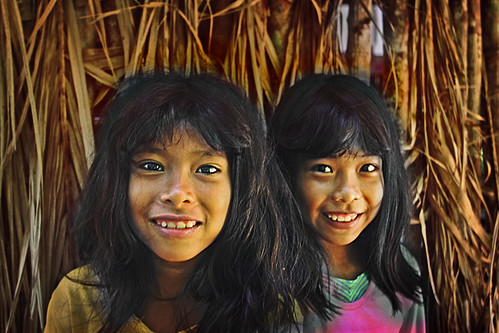
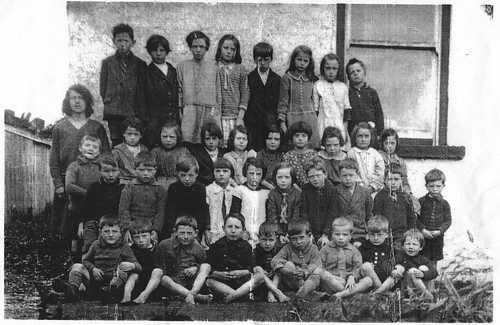

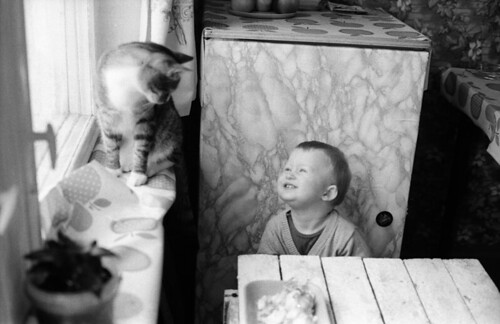
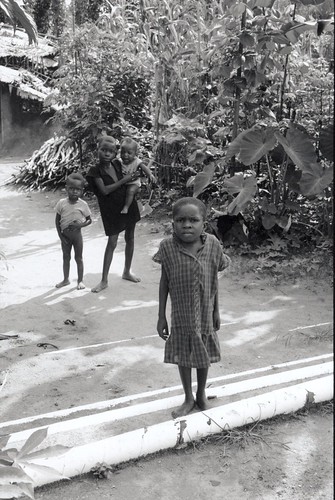
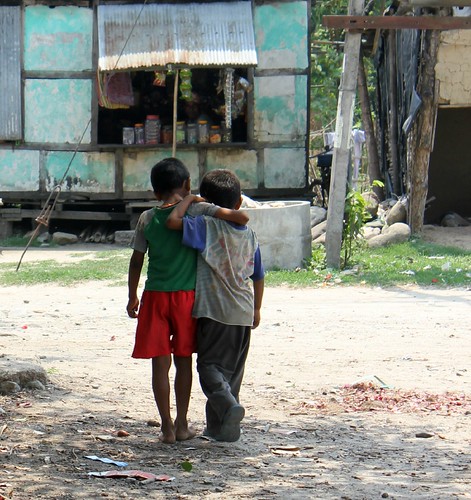

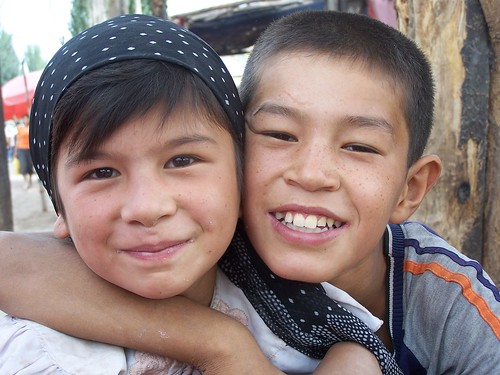


Tidak ada komentar:
Posting Komentar